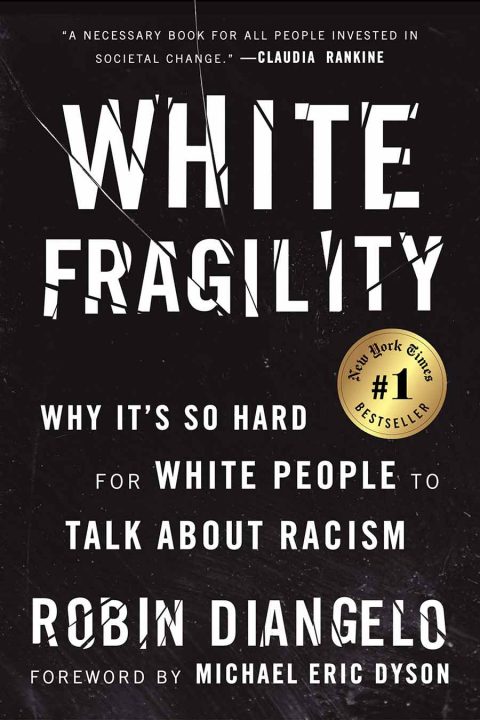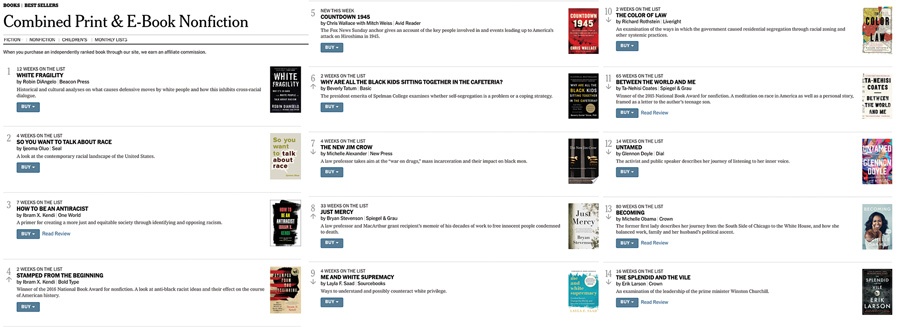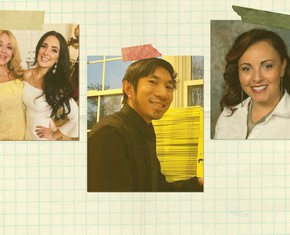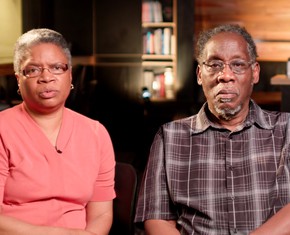The views expressed in our content reflect individual perspectives and do not represent the authoritative views of the Baha'i Faith.
A friend recently posted on Facebook: “’White Fragility’ is sold out. Does anyone have it?”
Um … yeah … don’t we all?

Of course, the post was referring to Robin DiAngelo’s useful book “White Fragility,” which helps white and white-adjacent people recognize how no one is immune from racism. The title references how, in moments of racial stress (e.g., when a Black person voices their pain and a white person listening centers their hurt feelings at hearing the comment, rather than the pain experienced over a lifetime by the original commenter) well-meaning non-Black people will center their discomfort and sensitivity, weaponizing their hurt feelings. When we recognize white fragility, we see how the suggestion or accusation of racism causes more outrage among white people than the racism itself.
The unintentional play on words around “white fragility” being sold out and seeing if anyone possessed it sounded ironically funny to me. It also surfaced something that’s been in the back of my mind since the killing of George Floyd, Breonna Taylor, and the powerful global movement for Black lives taking hold in communities around the world. My social media feeds have been inundated with lists, lists, and more lists of books to read to be less racist, less fragile, and more conscious of actual history.
Creating lists of what to do or read during the twin pandemics of COVID-19 and the recognition of structural racism has almost turned into a cottage industry. The effort has been so successful that The New York Times best sellers book list has been taken over by titles helping (mostly white) people overcome the racist attitudes they unintentionally acquired by being alive in societies where racist structures permeate every institution — from education to healthcare, policing, religion, banking, real estate, and justice.

Beyond the Reading List — What’s Next?
I rejoice that so many Americans are opening their eyes to the impact of America’s original sin: racism. The books on the lists include many titles I teach in my work training educators. But what happens after the book is read, and when the lists are replaced with new titles? How can we ensure that the struggle for racial justice isn’t pushed aside for the next crisis, or the next big headline?
I believe the answer lies in making a lifelong commitment to racial justice and anti-racism.
Shoghi Effendi, the Guardian of the Baha’i Faith, was unequivocal about doing this. Excerpts from a longer passage in his seminal letter to the American Bahai community, assert that “Freedom from racial prejudice … be adopted as the watchword… should be consistently demonstrated in every phase of their [Bahai’s] activity and life … It should be deliberately cultivated … It should, above all else, become the keynote of the policy [of Baha’i administration] …”
As a central figure of the Faith, he reinforces, repeats, and uses strong language to make it as clear as possible that freedom from racial prejudice should be our “watchword” and the “keynote” in our policy. This means we must constantly check that racial justice remains centered, even if it is difficult to do so.
Indeed, the Bahai Writings counsel us to “Strive with heart and soul in order to bring about union and harmony among the white and the black …”
Responsibility rests on white and Black individuals. Here’s the advice to white (and white adjacent — that means my fellow immigrants here) people:
“Let the white make a supreme effort…to abandon once for all their usually inherent and at times subconscious sense of superiority, to correct their tendency towards revealing a patronizing attitude towards the members of the other race, to persuade them through their intimate, spontaneous and informal association with them of the genuineness of their friendship and the sincerity of their intentions, and to master their impatience of any lack of responsiveness on the part of a people who have received, for so long a period, such grievous and slow-healing wounds.”
Translating Principles Into Actions
While book clubs are comfortable, dismantling racist structures is hard.
The Baha’i writings are filled with systemic and personal steps we can take to realize racial justice and the oneness of humanity, starting with making a supreme effort to abandon old ways, mastering impatience, practicing “[no]thing short of genuine love, extreme patience, true humility, consummate tact, sound initiative, mature wisdom, and deliberate, persistent, and prayerful effort.”
Alongside personal transformation, the Baha’i Writings tell us that in order to realize the principle of the oneness of humanity, structural change — “an organic change in the structure of present-day society” — must be realized.
Integrating these ideals in practice, amidst limits of social distancing, could look like:
- Reach out to Black friends and community members to check in to see how they are doing. However busy you are, don’t confine your outreach to the next time there’s a shooting or when you need a “diverse” voice for a project.
- Consider when was the last time your genuine social interactions included Black friends. Don’t have Black friends? You’re not alone. It’s estimated that three-quarters of White people have no Black friends. Relationships are the surest way out of racial segregation. Pray, seek, and act to connect with friends of diverse racial backgrounds. Don’t do this as a project to help others, but as a genuine way to create a stronger community.
- Consider setting up a personal or family reparations fund. You might already give to justice-oriented causes, but this would deliberately name the intention and effort. Don’t get bogged down in the details initially. Just start the effort, and encourage local organizations you are involved in, like your religious congregation, to also establish a reparations fund. My own family recently decided to begin a reparations fund, and this has begun a deliberate and thoughtful conversation with many others interested in doing the same.
- Teach your children that you do, in fact, see color. Children as young as six-months-old make racial distinctions and that awareness permeates elementary school curriculum and social interaction, then carries through life. Make your dinner table a safe space to ask questions and make it clear that your family is dedicated to realizing racial justice and equality — through your deeds first, and then through your language.
- In the spirit of “seeing color,” reflect honestly and humbly before making comments like “but we are all one” or “we believe in oneness.” As well-intended as these comments may be, the impact can really hurt and feel like an erasure. The Baha’i Writings are clear that “The purpose of justice is the appearance of unity among men.” So, unless people feel truly seen and heard, and know that justice is being served, language around unity will feel empty. Please consider how to bring justice so that unity might appear.
- Consider your profession and how you might contribute to dismantling the structures that perpetuate inequality and racism. No field of endeavor is free from the need for dismantling. Make it clear to your employer and co-workers that you are committed to racial justice, even if your work responsibilities don’t indicate an obvious link.
- If you are engaged in community or other local service, continuously review: Whose voices are centered in consultation and decision-making? What communities are being served? How are time and energy being spent in the community building process? Are minority communities being served through organic relationships or are people parachuting in and out of communities without genuine care for each other?
So many other steps can be taken. What would you add?
This list is only a beginning. As you evolve in your engagement to ensure justice for Black lives, your list — in this age of lists — should grow. It won’t need to be a performative list that goes viral, but a statement about the life you strive to live, and the world we hope to build.
















Comments
Sign in or create an account
Continue with Googleor